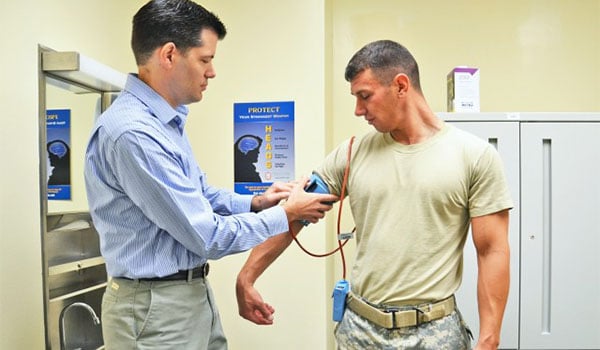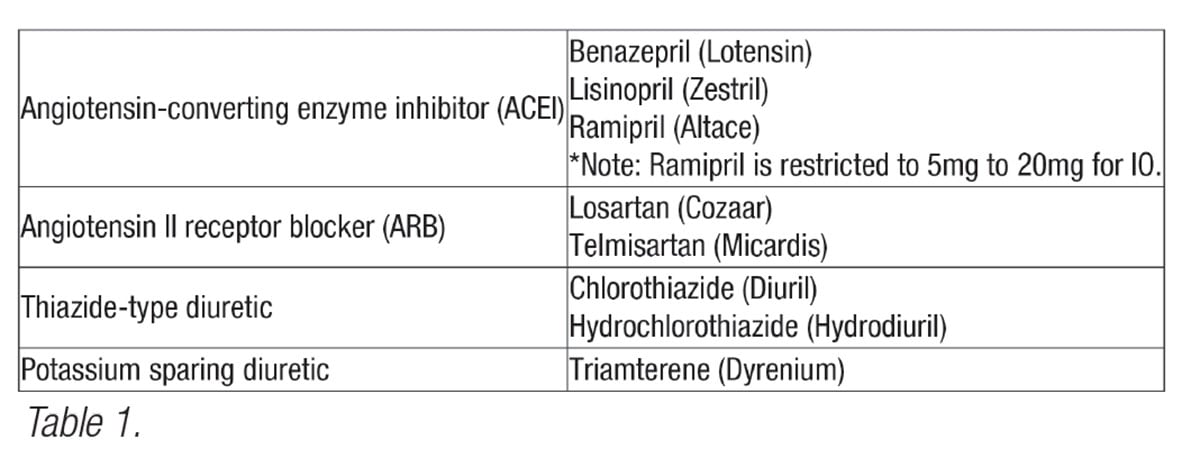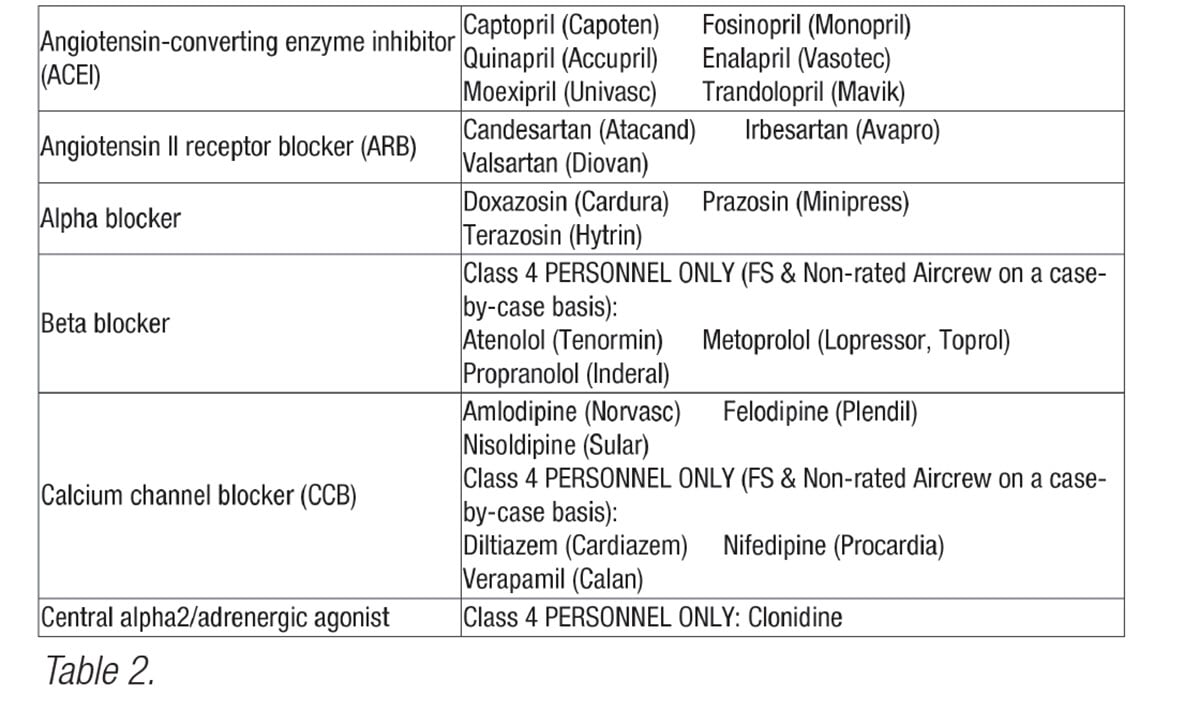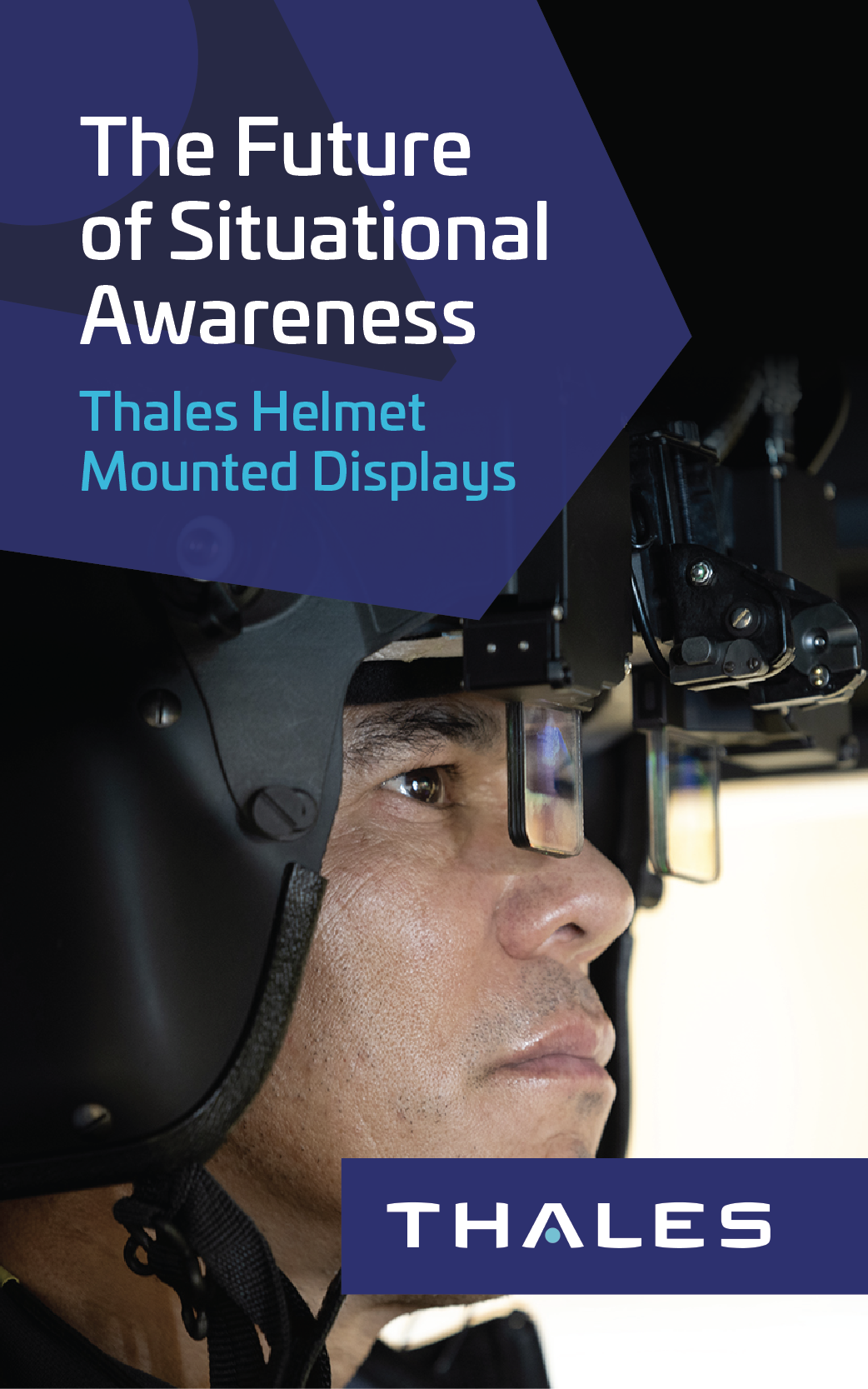
Ask the Flight Surgeon / By Lauren Gould and MAJ Joseph Pavelites: Question: I have been checking my blood pressure at home and it is starting to creep up. How does high blood pressure affect my flight career and what should I do about it?
FS: Causes & Background

Many people think that combat is the most life threatening event for Soldiers, when actually more Soldiers may die off the battlefield fighting a common enemy./ PATRICIA DEAL, ARMY.MIL
Blood pressure is measured in units of millimeters of mercury (mmHg) and is recorded using two numbers, as in “120 over 80” or 120/80. The first number is the systolic blood pressure (pressure in the arteries during a heartbeat) and the second number is the diastolic pressure (pressure in the arteries when the heart relaxes between heartbeats). Hypertension, or “high” blood pressure, is defined by Aviation medicine standards as a systolic pressure consistently greater than 140, diastolic pressure consistently greater than 90, or both. Hypertension can be caused by many factors including smoking, being overweight, improper diet, lack of physical activity, excessive alcohol consumption, aging, genetics and a stressful work or living environment. Untreated hypertension may result in a pounding sensation in one’s chest or head, dizziness and/or lightheadedness causing unsafe distractions in the cockpit. However, the effects of hypertension most often go unnoticed as the condition increases the risk of stroke, heart disease, kidney damage and even dementia. Proper management of hypertension is crucial to help safeguard your quality of life, your safety in flight and the longevity of your flying career.
IO vs. Waiver Requirements
Most cases of hypertension are manageable and are not disqualifying for flight. Under certain circumstances, flight student applicants may be granted an exception to the policy (ETP) and trained pilots may be granted a waiver for hypertension. Recent aeromedical policy changes allow “uncomplicated” hypertension to not require a waiver. Instead successful treatment may lead to the condition being simply noted in the medical record as Information Only (IO).
An IO is allowed if blood pressure is less than 140/90 mmHg and is treated with lifestyle changes including weight loss, diet change, and increased exercise, or if the hypertension is controlled by a single approved medication with no significant side effects. Significant side effects include dizziness, lightheadedness, feeling nervous, fatigue, headache, nausea/vomiting, etc. Approved single agent medications for an IO are listed in Table 1.

A waiver is needed for pilots with hypertension being treated with combination hypertensive medications or more than one medication. As always with medication use, there must be no significant side effects and a medical evaluation must exclude underlying pathology (i.e. kidney damage). To receive a waiver/ETP, a pilot needs documentation from a medical provider excluding underlying pathology, a 3-day average blood pressure meeting the 140/90 standard, acceptable electrocardiogram (ECG) results, lab results and a fundoscopic exam. Required lab tests include Chem7, hemoglobin and hematocrit (H&H), urinalysis, and a lipid panel. A fundoscopic exam is a non-invasive examination of the interior eye allowing assessment of the retina, optic nerve head, and blood vessels. Annual follow-up requirements for waiver renewal requires a 3-day average blood pressure measurement, ECG, and labs including Chem7, H&H, urinalysis, and if on a thiazide-type diuretic, also a lipid panel. Approved medications for a waiver/ETP are listed in Table 2.
*NOTE: Contact AAMA for medications that are not listed prior to submission of waiver request.

Alternative Treatments & Ways to Combat High Blood Pressure
Reducing salt, alcohol, and caffeine consumption, as well as eating potassium-rich foods, can help to combat hypertension. Managing stress, losing weight (for overweight patients), and eating modest amounts of dark chocolate (not milk chocolate) that is rich in antioxidants can also help to reduce high blood pressure. Remember, have your blood pressure checked regularly and work with your aeromedical provider to keep it in a healthy range! Unrecognized or improperly treated hypertension is dangerous to your health, your fellow fliers and to your livelihood. Fly Safe!
Questions?
If you have a question you would like addressed, email it to This email address is being protected from spambots. You need JavaScript enabled to view it.; we’ll try to address it in the future. See your unit flight surgeon for your personal health issues.
Lauren Gould is a student physician at the Alabama College of Osteopathic Medicine and MAJ (Dr.) Joseph Pavelites is a senior flight surgeon and Director of Occupational Medicine Residency at the United States Army School of Aviation Medicine at Fort Rucker, AL.
























